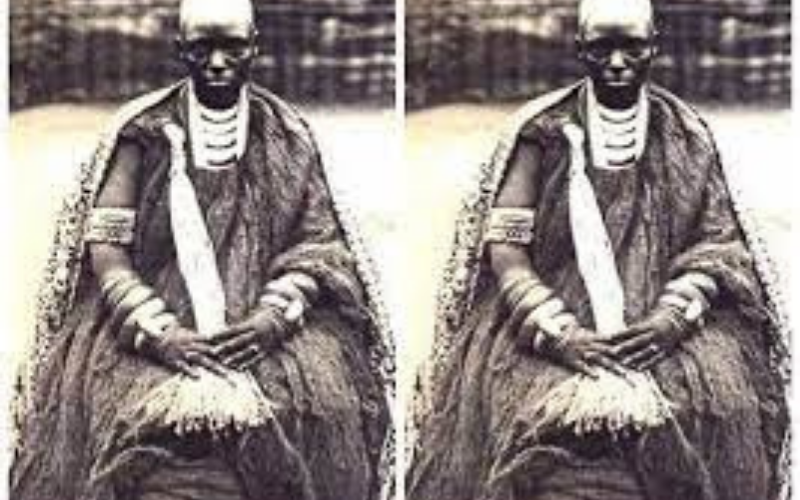Since many African societies are patriarchal, women’s achievements are also overlooked. Despite this, many African empires and territories have been led and founded by queens who have taken it upon themselves to defend their subjects, direct them to success, and lead them to war victories, even though it means committing heinous acts. This article will focus on how a Burundian killed her rival to become queen mother, then fought off the Germans in the 1900s.
Ririkumutima, from Burundi, is one of these queens. “A Machiavellian woman for whom the result justified the process, willing to do anything to reach her ends,” according to one definition.
She was one of the many wives of Mwezi Gisabo, the Burundian king who prevented German officials from using military force to defeat his country but ultimately recognized German authority in the Treaty of Kiganda in 1903. Rirkumutima, on the other hand, would become a thorn in the side of the Germans after Gisabo’s death, rendering colonization in Burundi very difficult for Europeans. And, secretly hoping that one of her sons would succeed Gisabo as king after his death, she made the late king’s succession process complicated.
Mwamikazi Nidi Ririkumutima’s full name is Mwamikazi Nidi Ririkumutima. Bizama hitanzimiza Mwezi, Ririkumutima, was born in the Kingdom of Burundi in the mid-nineteenth century. Karabona, Bishinga, Nduwumwe, Bangura, and Nganguzi were Gisabo’s favorite wives, and she gave him five daughters. She attempted to convince Gisabo to let one of her sons rule after him when he was still alive. Gisabo was having none of it. He chose to pursue convention over his wife’s desires, notwithstanding his undying affection for Ririkumutima.
After Gisabo’s death, one of his sons from an extramarital relationship, whom Ririkumutima had raised, was named to replace him. Mbikije, the uncle, was 15 years old at the time of his appointment. His succession was not out of place because he was born before Ririkumutima’s children. Ririkumutima, on the other hand, desired everything. She was dead set on seeing one of her sons inherit the throne so that she could become queen mother. And, since the law of succession wouldn’t accommodate it, she devised a strategy. The first move was to exclude her opponent, Ntibanyiha, who was also Mbikije’s mother. Ntibanyiha was to be regent during her son’s rule, according to tradition. Ririkumutima was able to assassinate her long before she could hand over her regency.
Ririkumutima then convinced the kingdom that she was Mbikije’s maternal mother and the rightful queen mother. She then exercised her regency under Mbikije and began making preparations for the second phase of her strategy. She had no idea that her sons would help her take the next step. One of her sons, Bangura, discovered Mbikije courting his wife. During an altercation over the lady, Mbikije injured his half-brother Bangura. The incident enraged Ririkumutima’s other sons, who went on to murder Mbikije in secret. According to some reports, they killed Mbikije with the approval of their mother, Ririkumutima.
Mwambutsa Bangiricenge, Mbikije’s successor, was to replace him after his death. Ngezahayo, Mwambutsa’s mother, was to ensure his regency. However, Ririkumutima assassinated Ngezahayo, allowing her to keep the title of queen mother while acting as regent during Mwambutsa’s reign. According to historians, becoming a queen mother was a prestigious role. Queen mothers wielded significant influence in their own right. Ririkumutima’s situation was similar, to the point that her sons would hold prominent positions in the future.
For years, Ririkumutima resisted the Germans. Even though Burundi became a German colony in 1890 as part of German East Africa, the colonial force did not “effectively dominate or dominate the territory” until 1916, when Belgian troops invaded and annexed the country. Ririkumutima died a year later. During her visits to European officials, Europeans described her as “intelligent, energetic, and more stubborn than all the princes in her entourage.”
MORE:
- Yaqub Al-Mansur: The Greatest Moor in African History
- In 1552, an enslaved black man became King of Venezuela


















